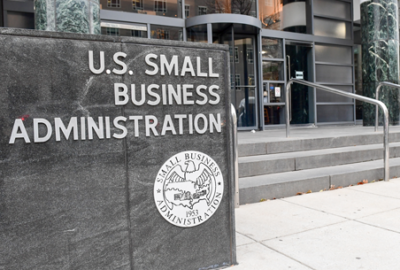

Hubbard Radio Washington DC, LLC. All rights reserved. This website is not intended for users located within the European Economic Area.
Contracting officers are supposed to use small business set-aside contracts if they think at least two small businesses are likely to bid on a request. It is ca...
Contracting officers are supposed to use small business set-aside contracts if they think at least two small businesses are likely to bid on a request. It is called the Rule of Two. There is a dispute over whether the Rule of Two applies to task orders under indefinite delivery-indefinite quantity contracts. Now the Small Business Administration is moving to resolve this question. For analysis, the Federal Drive with Tom Temin spoke to Rogers Joseph O’Donnell attorney Stephen Bacon.
Interview transcript:
Tom Temin
The problem here is whether that rule applies, you get one answer in the [Government Accountability Office (GAO)] on protest. And another answer from the Court of Federal Claims. Two completely opposite answers. Is that the issue here?Stephen Bacon
That’s right for about the last 10 years, GAO has ruled that the Rule of Two doesn’t apply when an agency is awarding a task order under a multiple award IDIQ. But a couple of years ago, with the Tolliver Group decision from the Court of Federal Claims, Judge Solomson ruled the opposite way and held that the agency does have to apply the Rule of Two as a threshold matter before they decide which type of contract vehicle to use. So that’s important, because if a contracting officer can simply avoid the Rule of Two by going to a multiple award IDIQ vehicle, that obviously has implications for the types of satisfied work that small businesses can do.Tom Temin
Right. And with more and more types of services being commoditized, open requisitions, open requests are getting a little bit less frequent than use of these large vehicles, correct?Stephen Bacon
That’s right. And so this split in the law is becoming even more important. And I think SBA has recognized that, and they’ve gone on record in prior GAO decisions, sometimes the GAO, when it involves an issue of Small business rules, we’ll ask the SBA to weigh in on the protest, to give their interpretation of their own regulations. And in some of those prior GAO cases, the SBA has gone on record and said, that it believes that the Rule of Two should be applied before a decision about which type of contract vehicle to use is made. But GAO has said, well, we disagree with your interpretation of your own regulations, and that’s our opinion. And so now, I think what we’re seeing is SBA wants to step in and clarify this as a matter of regulation.Tom Temin
Right. And just a quick question before we get to some of those details. Is there any statutory underpinning for the Rule of Two that says, only mentions, for example, open competition?Stephen Bacon
Yeah. So the ambiguity arises from a 2010 amendment to the Small Business Act, which said that agencies had the discretion to set aside task or delivery orders under multiple award IDIQ. And that’s where the source of the split has come. GAO ruled that amendment, to the Small Business Act, meant that agencies didn’t necessarily have to apply the rule of two before using a task order. And the court reached the opposite conclusion interpreting that specific statutory change.Tom Temin
Sure. And do you think that there is an increasing problem with this ambiguity, because up until now, most of the big IDIQs, were either designed for large competitors, or they had companion vehicles or next door vehicles that were set aside for small business. But now we’re seeing small and large on some of the emerging IDIQs.Stephen Bacon
Right, you’re seeing more and more of that, where there’s different swim lanes for small businesses and large businesses. And so, I anticipate that this rule change will address that specifically, in how agencies should handle that when applying the Rule of Two.Tom Temin
We’re speaking with Stephen Bacon. He’s an attorney with Rogers Joseph O’Donnell. And let’s get into the SBA. What are they changing? And will that help them conform better to the statute as it was changed back then? Or what are they going to do here?Stephen Bacon
So we haven’t seen any of the details yet, but we’re expecting a proposed rule, I would expect sometime this year, to come out to explain how the SBA wants agencies to apply the Rule of Two. And specifically, I expect them to, essentially codify what the Tolliver Group decision held. Which again, is that agencies have to apply that Rule of Two as a threshold matter, which means that they have to, before they decide to use, for example, an IDIQ vehicle with only large prime contractors. They would have to do market research to determine whether there are two small businesses out there that could do the work. And if they conclude that there are two small businesses that could compete for the work, then they have to set it aside under some type of vehicle. And so I anticipate that this rule will clarify that, there are some potential exceptions that could be made. This is still a rule that’s undergoing interagency review and review by [Office of Management and Budge (OMB)], as part of that whole process. And so it’s not entirely clear how this rule will shake out in its proposed form.Tom Temin
Right. That rule has to go through OIRA first, right? the Office of Information and Regulatory Affairs. And they’re kind of backed up right now, aren’t they? With rules, proposed rules.Stephen Bacon
I believe that’s typically the case. I don’t know what the exact status is right now. But, I got the sense and hearing the update. Where this came from was a regulatory update provided by SBA’s Associate General Counsel for Procurement Law, giving an update on their regulatory agenda. And so this is one of the key issues on their agenda, that I expect that they would be able to push through sometime this year.Tom Temin
Right. So the proposed rule itself, is actually not out yet.Stephen Bacon
That’s right. So this is not in place yet. And so, until that change is made, you still have this split between GAO and the court on this issue?Tom Temin
And did you get the sense that when they come out with a rule, it will be proposed, it won’t be interim, for example.Stephen Bacon
I would expect it will be a proposed rule. I didn’t hear anything differently, during this regulatory update, that I mentioned. And I would expect, they’ll want to give industry an opportunity to weigh in, I expect there’ll be a good amount of interest in this rule in particular.Tom Temin
So I guess, whether, say, the legal community thinks it’s good or bad to clarify this, according to how SBA wants to do it, depends on whether you represent small businesses or large ones.Stephen Bacon
That’s right. I think that my expectation would be that, large businesses would be resistant to this. Because I think, if this rule goes through, you’re going to see task orders that were formerly performed under IDIQs with large businesses, suddenly shifted and set aside to other vehicles. And so I think that could create some interesting issues, in terms of, accelerating this trend that we see towards more mentor protege joint ventures and things like that, where you see large and small businesses teaming up to be able to perform set aside work.Tom Temin
But in general, do you feel it would be better to have this issue clarified, than to have protesters shopping different venues for their protests, depending on the particulars of a different case?Stephen Bacon
Sure. I think clarity in the law is always a good thing. And particularly, in the small business realm, where you have small companies who are trying to compete for set asides and aren’t going to be as sophisticated and understanding how all these rules operate and work together.Tom Temin
And just to put a period on it, the SBA says it wants to clarify that, by having it such that the Rule of Two would apply to IDIQs.Stephen Bacon
That’s right. That’s their intent, as it was described, to a meeting that I attended, where their regulatory agenda was described.
Copyright © 2024 Federal News Network. All rights reserved. This website is not intended for users located within the European Economic Area.
Tom Temin is host of the Federal Drive and has been providing insight on federal technology and management issues for more than 30 years.
Follow @tteminWFED


